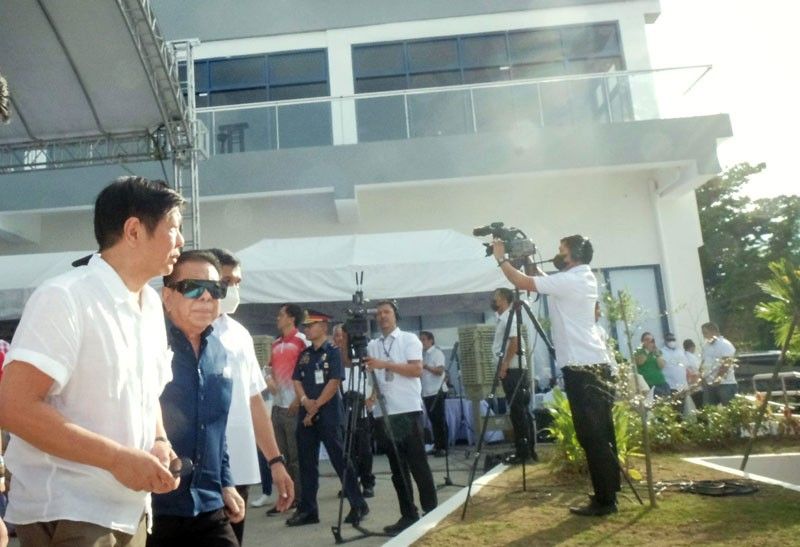Marcos wants land use law institutionalized

MANILA, Philippines — President Marcos is pushing for the passage of a law instituting a national land use policy, citing the need for all government entities to integrate their development plans and to work together to harmonize their projects.
During the launching of the Pier 88 in Liloan, Cebu yesterday, Marcos said the province stands to greatly benefit from a systematic and integrated planning that would further solidify its urban development foundation and consolidate its socio-economic strength.
He added that transportation projects such as Pier 88 and Cebu Bus Rapid Transit system “showcase kindred examples of good urban planning.”
“Let us imagine if these kinds of projects are replicated across the country, laterally and locally coordinated, and harmonized both on the provincial and national levels – then we could say that we are genuinely closer to our ambition of a prosperous, inclusive, and resilient society,” the President said.
“Hence, we highlight the essential importance of holistic, systematic and integrated planning in our country today, as we slowly but collectively tread along that path,” he added.
Marcos went on to highlight the need for a law on national land use policy, calling it “terribly important.”
“Allow me to reiterate the urgency of enacting a (National) Land Use Policy for our country, which is a priority legislative agenda of this administration. I have had the opportunity to work on this matter when I chaired the Senate urban planning, housing and resettlement committee some years ago. It never materialized for reasons beyond our control. The pandemic is also included in that circumstance,” Marcos said.
“This time, we will see to it that this measure shall be given [the] urgent attention that it deserves, cognizant of its fundamental importance to our holistic national development,” he added.
Marcos said through a national physical framework plan, all mandates and policies on land use shall be integrated, from watersheds to farm lands, from cultural heritage sites to ancestral domains, from protected to disaster-prone areas. Such a policy involves a whole-of-government approach, as local governments must ensure that their respective physical and land use plans shall conform to and shall be consistent with the national plan, he added.
“Moreover, national and local governments will tap the budding profession of environmental planners for its technical expertise in the crafting of accurate and well-aligned physical and land use plans,” the Chief Executive said.
Marcos thanked the House of Representatives for passing its version of the national land use bill on third reading just a few days ago.
“It is terribly important. I have been following this from the time that I was governor to the time that I was congressman until the time I was senator and I continue to do so now as President,” he said.
Smart port
In the same speech, Marcos welcomed the grand launch of Pier 88, saying it would offer a faster transport alternative for passengers and cargo and “immensely” serve the interests of the people of Liloan and beyond.
“It’s encouraging to see that a massive undertaking such as this, where the local government takes the lead and collaborates with the private sector and other LGUs, in the pursuit of objectives consonant with the national development agenda,” he said.
Pier 88, Cebu’s first smart port, was developed by Topline Group of Companies in partnership with Pier 88 Ventures Inc. and the local government of Liloan.
The three-hectare port is expected to benefit passengers traveling from the northern part of Metro Cebu who commute daily to their workplaces in Mandaue City, Lapu-Lapu City and Cebu City, and vice versa.
According to Radio Television Malacañang, Pier 88 will incorporate a smart port system, featuring an automated ticketing system with QR codes and radio frequency identification-ready system to be integrated in a mobile application. The port will initially serve a route connecting Liloan and Mactan wharf. Once the port becomes fully operational, travel time between Liloan and Mactan is expected to significantly shorten from about two hours by land to only about 30-45 minutes.
- Latest
- Trending






























